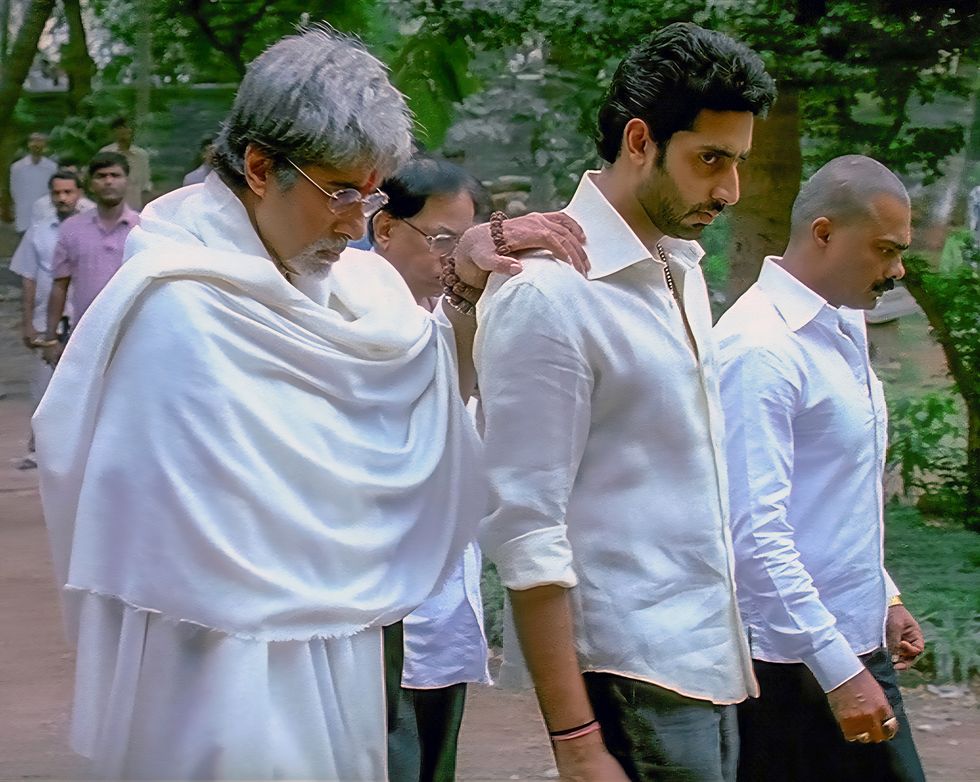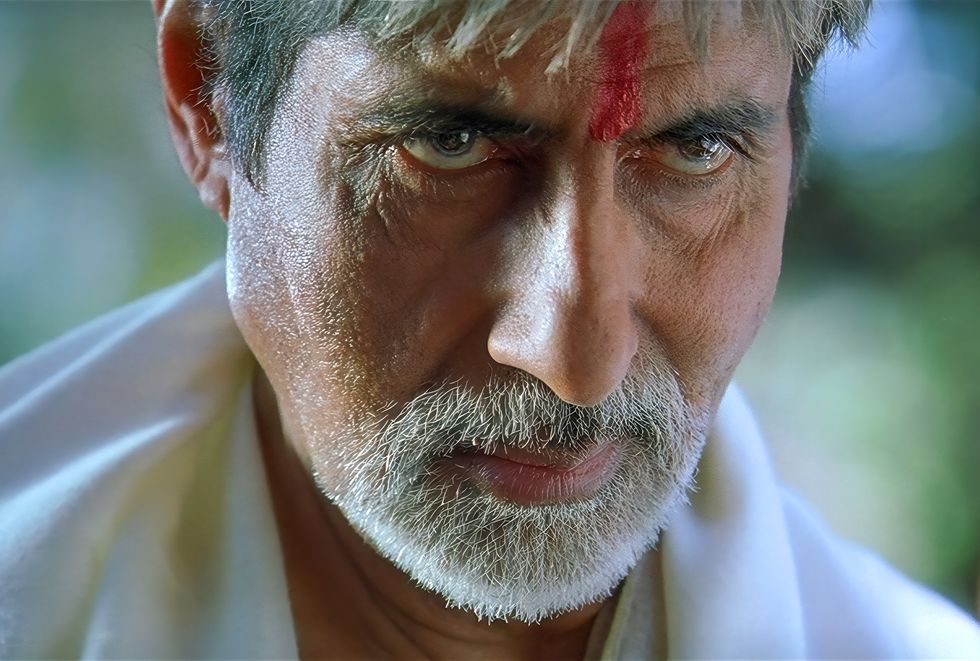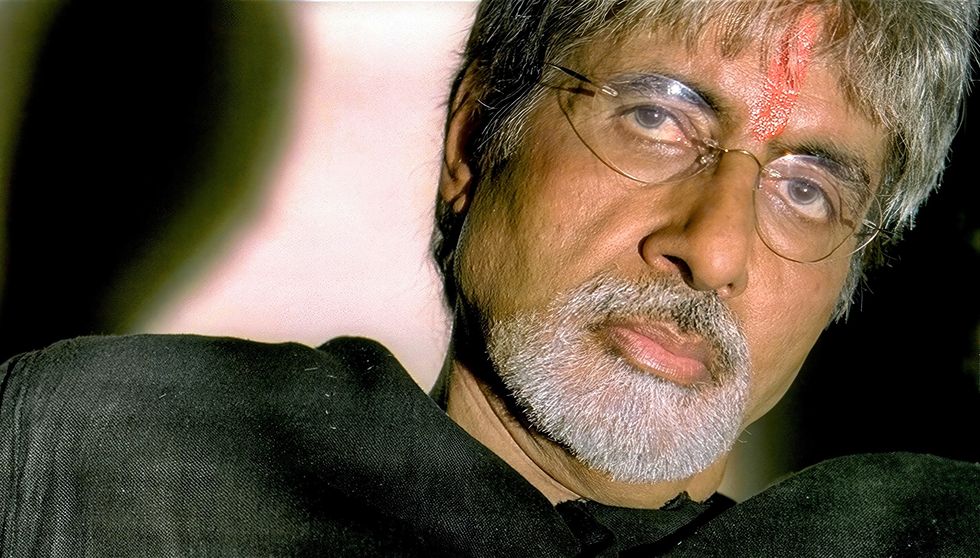A 44-foot-long Japanese-style handscroll painted by the renowned Indian blind artist, Benodebehari Mukherjee, has resurfaced after almost a century and is on public display in the Indian city, of Kolkata, his birthplace, the BBC reported.
Mukherjee, born in 1904, was blind in one eye and lost his vision completely at the age of 53, following eye surgery for his other functional myopic eye.
However, he continued to create remarkable works as a landscape painter, sculptor, and muralist, becoming a defining figure in 20th-century Indian modern art.
The scroll, titled Scenes from Santiniketan, which is just six inches wide, will travel in July to Santiniketan, the university town founded by Nobel Laureate Rabindranath Tagore, where Mukherjee was a student and later a teacher.
This is the longest scroll ever created by the artist.
The scroll's journey to its current display in Kolkata involved several exchanges. It appears that Mukherjee gifted or sold the scroll to Sudhir Khastagir, an art school graduate in Santiniketan, around 1929.
Khastagir later gifted it to another artist, who eventually sold it to Rakesh Saini, an archivist and owner of an art gallery in Kolkata, six years ago.
Crafted when Mukherjee was just 20 years old, the captivating scroll features ink and watercolor paintings meticulously layered on paper.
It takes the viewer on a journey through Santiniketan, starting with a figure sitting under a tree, possibly representing the artist himself.
The scroll guides the viewer through a forest of Sal trees, changing seasons, and various scenes depicting human figures, animals, and nature. It also captures the artist's sense of solitude and isolation, expressed without self-pity or bitterness.
Mukherjee's teacher at Santiniketan, Nandalal Bose, was initially concerned about his visually impaired student but decided to let him pursue art if he showed sincerity and interest.
Mukherjee went on to become an influential artist, with notable students such as KG Subramanyan, Somnath Hore, and filmmaker Satyajit Ray.
The scroll remained hidden for nearly a century until it was acquired by Sahni, owner of Gallery Rasa in Kolkata, in 2017.
Alongside the scroll, the Kolkata exhibition also features reproductions of Mukherjee's other works, including The Khoai, Village Scenes, and Scenes in Jungle.
Owned by the Victoria & Albert Museum in London, the last artwork is beautifully painted on the semi-circular pith of a banana tree.
Some of his famous frescos are displayed at Santiniketan, showcasing his talent prior to losing his vision.
Despite his blindness, Mukherjee continued to create art until the end, producing murals, collages, and sculptures with the same artistic skill.
In a rare comment on his impaired vision, he described blindness as a new feeling, experience, and state of being.
The rediscovery of this forgotten scroll not only highlights the talent and resilience of Mukherjee but also provides an opportunity for art enthusiasts to appreciate and celebrate his contributions to Indian art.





 An explosive new play that fuses biting satire, history and heartfelt storytellingPleasance
An explosive new play that fuses biting satire, history and heartfelt storytellingPleasance








 Lunchbox is a powerful one-woman show that tackles themes of identity, race, bullying and belongingInstagram/ lubnakerr
Lunchbox is a powerful one-woman show that tackles themes of identity, race, bullying and belongingInstagram/ lubnakerr She says, ''do not assume you know what is going on in people’s lives behind closed doors''Instagram/ lubnakerr
She says, ''do not assume you know what is going on in people’s lives behind closed doors''Instagram/ lubnakerr
 He says "immigrants are the lifeblood of this country"Instagram/ itsmetawseef
He says "immigrants are the lifeblood of this country"Instagram/ itsmetawseef This book is, in a way, a love letter to how they raised meInstagram/ itsmetawseef
This book is, in a way, a love letter to how they raised meInstagram/ itsmetawseef
 The crew of The Ministry of Lesbian Affairs
The crew of The Ministry of Lesbian Affairs
 A still from Sarkar, inspired by 'The Godfather' and rooted in Indian politicsIndia Glitz
A still from Sarkar, inspired by 'The Godfather' and rooted in Indian politicsIndia Glitz Sarkar became a landmark gangster film in Indian cinemaIndia Glitz
Sarkar became a landmark gangster film in Indian cinemaIndia Glitz The film introduced a uniquely Indian take on the mafia genreRotten Tomatoes
The film introduced a uniquely Indian take on the mafia genreRotten Tomatoes Set in Mumbai, Sarkar portrayed the dark world of parallel justiceRotten Tomatoes
Set in Mumbai, Sarkar portrayed the dark world of parallel justiceRotten Tomatoes Ram Gopal Varma’s Sarkar marked 20 years of influence and acclaimIMDb
Ram Gopal Varma’s Sarkar marked 20 years of influence and acclaimIMDb
Police may probe anti-Israel comments at Glastonbury